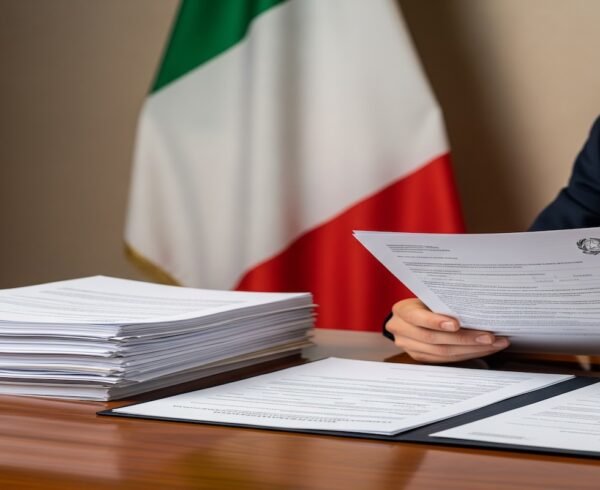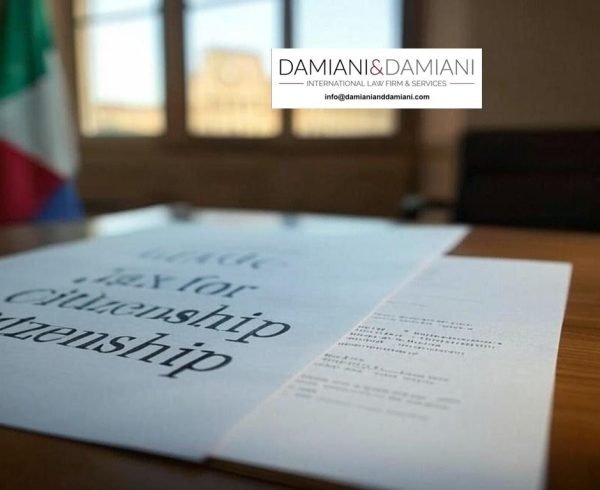A non-Eu cohabitating partner of an EU citizen can apply for residence permit – despite the two of them not being married – on the ground of the right of family reunification, as granted by the European Union. Among the types of residence permit in Europe, this is based on the family reunification of the non-EU cohabitant within the de facto couple. The team of lawyers specialised in European immigration law at Damiani&Damiani has obtained numerous judgments whereby third country nationals who cohabitated with EU-citizens have been granted the right of entry in the EU as well as a residence permit.
The procedure of application for legal residence and residence permit for the non-EU partner of a European citizen entails the following steps (de facto partner visa europe):
- request of verification of the de facto marital cohabitation to a European country Tribunal;
- application for a registered partnership in an EU country;
- application for residence permit for family reunification.
Marriage as the alternative option to residence permit. A bi-national de facto couple can reunite.
The EU immigration law considers different options of entry in a European country by a third country national. A non-EU citizen may enter and obtain a residence permit in an EU country on the following grounds:
- study reasons;
- work reasons;
- family reasons.
A non-EU national who is in a stable cohabitation relationship with a European citizen is as entitled to apply for family reunification as a married spouse. Under these circumstances, the third country national can obtain the right of residence and presence in Europe for binational family reunification
The right of cohabitation in European countries is granted to a non-EU national who is united by a stable, affective relationship to a European partner, according to the right of family reunification, when the partners are from mixed European or extra-European countries. The right of a bi-national cohabitating couple to live under the same roof is the same that is granted to a married mixed couple. In the first case, the proof of a stable cohabitation confers the third country partner the right of continuous residence – which can even be claimed despite the couple not physically being in Europe yet. In case of marriage, the non-EU spouse is eligible for EU citizenship.
Unmarried partner visa no Eu
The unmarried couple formed by a non-EU partner and an EU national is bound by the same life project, same livelihood and solidarity bonds as a legally married couple formed by a non-EU spouse and an EU citizen, according to the European immigration law. A third country partner must be granted a residence permit for family reunification just as well as a third country spouse. A residence permit for family reunification for a non-EU non-marital cohabitant can only obtained by judicial proceeding. The immigration and EU residence lawyers at Damiani&Damiani international law firm have obtained several favourable Court rulings, whereby the request of the non-EU cohabitating partner to be registered as a partnership in an EU country has been granted.
For instance, Damiani&Damiani have obtained favourable judgments for a couple formed by an Italian and a Peruvian citizen, as well as for a couple formed by an Italian and an Indonesian national. In both cases, the extra-EU cohabitants have been registered as legal partners on the grounds of their cohabitation agreement, with no residence permit, despite the couple not having lived under the same roof yet. The Court has envisaged the risk of expulsion from Italian territory for the extra-EU partners – a circumstance that would have jeopardised the right to family unity, as granted by the European Constitution, as well as the right of residence and presence of non-EU family members of Italian nationals.
Do not hesitate to get in touch with Damiani&Damiani International Law Firm through our contact form.
A non-EU citizen cohabiting partner with an Italian citizen may file for and obtain a residence permit for family reunification under Italian Legislative Decree No. 30/2007
Visa Italy or citizen no EU and Residence permit non-marital cohabitation, Civil Partnerships Italy, Binational couples or unmarried partners
Non-marital cohabitation is when two people in a relationship live in the same home without being legally married. The important recognition of the right to residence permit for cohabitation with an Italian citizen was obtained thanks to the determination of the attorneys Irene Damiani and Anna Sagone, of the Damiani&Damiani law firm with offices in Palermo, Rome and Turin, Italy, in Barcelona, Spain, and in Istanbul Turkey, Athens in Greece, who requested and obtained that the Police Headquarters of Turin grant a residence permit to their client, a non-EU citizen cohabiting with an Italian citizen.
De facto couple with a non-EU citizen. The non-EU partner has the right to a residence permit even if he is not in Italy
The September DPCM AntiCovid and visa entry into Italy for the non-EU partner of the binational couple. Then can have italian partner visa
With the Prime Ministerial Decree for the containment of the Covid19 pandemic, the Italian government regulated the entry of the partner of an international couple made up of non-EU citizens living with an Italian citizen. READ MORE HERE Italian Foreign Fact Couples. With the AntiCovid DPCM the partner can enter Italy
The latest favorable judical sentence for cohabitation visa Italy. The case of Susan, a Peruvian citizen, and Mario, an Italian cohabitant.
Go to the Link HERE
“Despite the fact that, as a result of article 3 of Italian Legislative Decree 30/2007, Italy recognises the right of non-EU partners of European citizens with whom they have a de-facto, i.e., stable, relationship to have a residence permit, the police had so far denied it. “We put together a substantial statement of defence for our client,” say the attorneys Irene Damiani and Anna Sagone, “and succeeded in overturning the decision and obtaining the issue of a residence permit to the non-EU family member cohabiting with an Italian citizen.” In the statement of defence produced for their client, the attorneys Irene Damiani and Anna Sagone argued the right of EU citizens and their non-EU family members to circulate and reside freely within the territory of the Member States, as recognised by Directive 2004/38/EC of the European Parliament and of the Council of 29 April 2004 and transposed by Italian Legislative Decree 30/2007.
Legislation on cohabitation and the adaptation of laws on the issue of residence permits or visa for cohabitation partner italy
Already from the so-called Cirinnà Act of 2016, a de-facto cohabitation officially registered with the competent Registry Office has the same value as a marriage. The extension of rights to de-facto couples as if they were married has led the most recent jurisprudence, in full compliance with Article 3 of the Italian Constitution, and the registration of de-facto cohabitation, which is not recognised by all as a valid tool for the conversion of the residence permit for family reasons, to argue that “the current legislation on residence permits, though it has not yet been adapted or otherwise well-coordinated on the point and with the reforms referred to in Italian Law no. 76/2016 on civil and de-facto unions, allows the issue of a residence permit for family reasons under article 30, paragraph 1, letter b) of Italian Legislative Decree no. 286/1998 also to a cohabiting foreign partner of an Italian citizen,” determining that where the formal and material conditions are in place said legislation should also be applied to de-facto unions (see RULING OF THE ITALIAN STATE COUNCIL – 31.10.2017 no. 5040), since the relationship is stable and duly attested by official documentation
Recognition by the Turin Police Headquarters and the consequent issue of a residence permit for cohabitation, constitutes a precedent of great importance for immigration in Italy in terms of the rights of residence and citizenship denied to non-EU citizens who are family members of Italian citizens.
Contact Legal firm Damiani&Damiani for your legal practice for immigration














